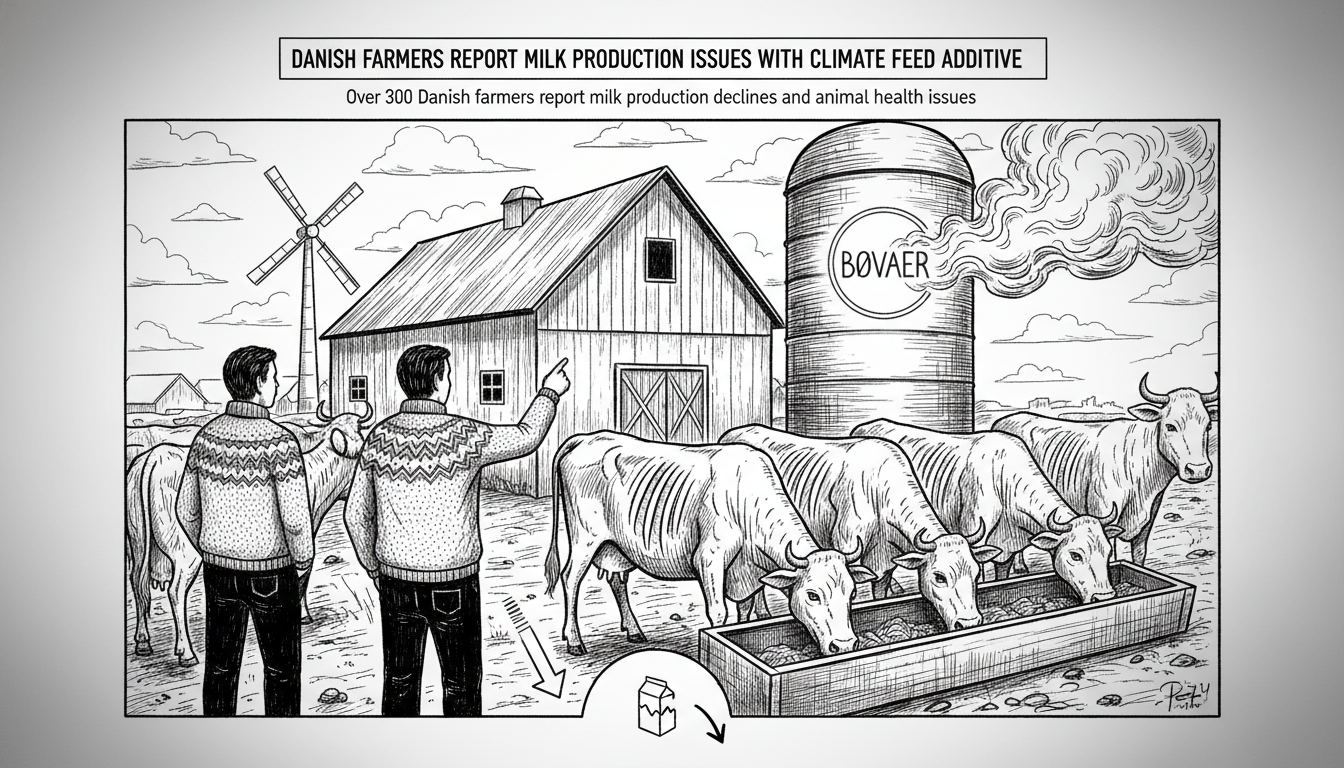More than 300 Danish farmers report problems with milk production after using the mandatory climate-friendly feed additive Bovaer. A new survey reveals significant concerns in Denmark's dairy industry about this methane-reducing supplement.
Research organization Seges Innovation collected responses from 551 farmers. Among them, 327 reported decreased feed intake and milk yield after introducing Bovaer. The survey shows 376 farmers experienced milk production declines alone, while 365 saw only reduced feed consumption.
Seges Innovation emphasizes these responses do not represent the overall situation among milk producers. The organization has not confirmed whether Bovaer actually causes the problems. They also haven't verified if farmer reports match data from the national cattle database.
Industry experts note the timing raises questions. Most dairy farms began using Bovaer in October to meet mandatory requirements. Fewer farmers reported problems when they started using it earlier in the year.
Ida Storm, director of Agriculture & Food's Cattle Sector, finds this pattern interesting. The smaller proportion experiencing issues earlier might provide clues about the underlying causes, she noted in a statement. Storm welcomes further analysis to understand what drives the reported problems.
Animal health concerns emerge from the survey data. Among 551 responses, 349 herds experienced more metabolic and digestive disorders. These include reduced rumination, poisoning symptoms, diarrhea, and fever.
Seges Innovation explains that declines in both feed intake and milk production could indicate affected rumen function. This situation might not necessarily be problematic but could increase risks of feed-related metabolic diseases and disorders in cows.
Denmark's conventional dairy sector includes 1,641 herds with over 50 milking cows. The October 1 deadline required farmers to begin using either Bovaer or additional fat to reduce cattle methane emissions.
The Danish agricultural sector faces balancing climate goals with practical farming realities. While reducing livestock methane emissions remains crucial for climate targets, farmer experiences highlight implementation challenges. This situation demonstrates how environmental regulations can create unintended consequences for agricultural producers.
International readers should understand Denmark's position as a major dairy exporter. The country produces substantial dairy products for global markets. Any production issues could affect international supply chains and climate policy discussions worldwide.
Similar methane-reduction technologies are being implemented across Nordic countries and globally. Denmark's experience with Bovaer could influence how other nations approach agricultural emissions reduction. The coming months will show whether these are temporary adjustment issues or more fundamental problems requiring policy changes.

